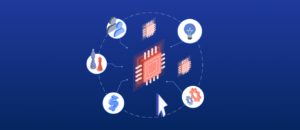The 5 Best Use Cases of AI in Project Management



Artificial Intelligence is driving project management to the next level. From automating repetitive tasks such as scheduling and reporting to enhancing predictive analytics and risk assessment, AI is helping project managers boost efficiency and project outcomes.
Project leaders still rely on tools like spreadsheets and slides for tracking deliverables and timelines. However, these tools fall short in environments where projects are continuously evolving to meet dynamic business goals: of $48 trillion annual global investments, only 35% of projects were successful in 2024.
This low success rate is primarily due to outdated technologies and insufficient automation in project management. In the past, project management improvements were mainly driven by automation. But new investments in AI for project management are set to further improve processes. Even a 25% improvement in project success, driven by AI adoption, could translate to trillions of dollars in value across industries.
In this article, we will explore the five best AI use cases in project management, answering the following questions:
- How can AI be applied to improve efficiency and project success rates?
- What are the primary challenges in implementing AI in project management?
- How can project managers effectively integrate AI tools to maximize their benefits?
- What steps can organizations take to ensure successful AI adoption in project management?
AI in Project Management is Enriching Human Skills
AI in project management is commonly used to improve the efficiency, accuracy, and organizational aspects of each task. According to Zenhub, 72% of software teams are actively exploring AI tools, with 20% of them already using them. The top benefits cited by project managers include a reduction in busy manual work (77%), improved accuracy and fewer human errors (47%), and less time spent in meetings (44%).
AI use cases in project management extend across several applications and technologies. For instance, Machine Learning (ML) and Deep Learning drive predictive analytics and task scheduling, while natural language processing (NLP) and Computer Vision enhance team communication and knowledge sharing. Other technologies, like Generative Adversarial Networks (GANs) and Expert Systems, support safe testing and strategic decision-making.

In this sense, AI will enable project managers to move beyond basic administrative tasks and focus more on strategic thinking. AI-powered tools can automate task assignments, predict project risks, optimize resource allocation, and streamline reporting—tasks that currently consume significant time for project managers.
As per Gartner, 80% of project management tasks are expected to be automated by 2030 through AI-powered solutions, including machine learning and natural language processing (NLP). Moreover, 70% of job titles will transition from a traditional portfolio, program, and project (3P's) hierarchy to role-based descriptors.
It is therefore important to understand that AI is designed to complement human skills, not replace them. In fact, project management requires emotional intelligence, stakeholder management, and creative problem-solving that AI can only partially replicate. Let’s explore more in detail the most relevant use cases of AI in project management.
The 5 Best AI Use Cases in Project Management
Oftentimes, AI is used interchangeably with ‘automation’. However, the two terms differ significantly: automation follows predefined rules, while AI simulates human-like intelligence. In the past, most efforts focused on automating standardized tasks, which marked the initial phase of AI in project management, making the two concepts co-dependent.
Some AI use cases in Project Management are chatbot assistants, machine learning-driven management, and autonomous project management. Ultimately, AI will transform project management, impacting nearly every phase, from planning to processes and people.
1. Integration and Automation
The first use case is Automation. AI is delivering consistent improvements on that matter, especially in integrating standardized project tasks through workflow automation.
In practice, this means automatically updating project budgets in forecasting reports without manual data entry. AI-powered scheduling tools can monitor task progress in real-time, notifying project managers only when intervention is required, such as in exception-based scenarios.
Real-life examples illustrate AI’s current role in integration and automation:
- Microsoft Project Online and Wunderlist work together to automate task creation and scheduling.
- Trello and Zapier: By connecting Trello to platforms like Google Sheets or Slack through Zapier, project teams can automatically generate reports, track progress updates, and send alerts, improving data accuracy and communication efficiency.
- Jira Automation Rules: Jira’s built-in automation rules allow teams to auto-assign tasks, update statuses based on project events, and trigger notifications for bottlenecks, making it ideal for agile project workflows.
This focus on integration is expected to grow, with enhanced tools for automating standardized project management processes. Such advancements will reduce labor costs and allow project managers to shift their attention toward managing complex activities, including stakeholder engagement and strategic planning.
2. AI Chatbots and Virtual Project Assistants
AI-powered virtual project assistants are transforming project management by taking over routine interactions, administrative tasks, and operational support, allowing project managers to focus on higher-level responsibilities. Key benefits include:
- Task Coordination: Virtual assistants handle tasks such as scheduling meetings, tracking project progress, sending reminders, and updating team members on project status.
- Reduced Administrative Burden: By managing repetitive tasks, AI assistants free project managers from low-value work, enabling them to concentrate on strategic responsibilities.
- Quick Access to Project Data: AI assistants provide instant access to project progress and performance data, improving team coordination and decision-making efficiency.
Moreover, with automated reminders and updates, team communication becomes smoother, reducing the need for manual follow-ups. These benefits streamline workflows and improve overall project efficiency, helping project managers focus on high-priority tasks.
Most relevant applications include:
- Monday.com’s Workbot for Slack: This AI bot integrates with Slack to automate status updates, send deadline reminders, and provide quick access to project progress data, making team coordination easier and more efficient.
- ClickUp’s AI Assistant: ClickUp has introduced an AI assistant that helps with task management by generating meeting summaries, setting reminders, and highlighting action items from conversations, reducing the need for manual input.
- ChatGPT Integrations for Project Management: though not strictly a chatbot, many companies now use customized versions of ChatGPT or similar AI models to generate reports, answer project-related questions, and even suggest improvements based on historical data, transforming project assistants from basic bots into proactive project support systems.
In the future, AI-driven project assistants will play an essential role within Project Management Offices (PMOs), transforming into integral components of project support systems.
3. Machine Learning for Predictive Analytics
Machine learning (ML) is revolutionizing project management through predictive analytics and advanced data analysis. By processing vast amounts of project data, ML can quickly identify high-value projects, helping organizations invest resources more effectively. This technology enables:
- Faster Project Identification: ML algorithms can quickly identify projects with high success potential, ensuring resource investments target valuable initiatives.
- Bias Reduction: Data-driven decisions minimize human biases, fostering objective and fair prioritization.
- Portfolio Optimization: By balancing risk and potential value, AI enables a well-rounded project portfolio that supports strategic organizational goals.
Current machine learning applications include:
- Forecast’s AI-Powered Predictions: Forecast’s platform uses ML algorithms to predict project timelines, budget forecasts, and potential delays. By analyzing data from previous projects, it offers proactive suggestions to improve resource allocation and optimize scheduling.
- Celoxis’s Predictive Analytics: Celoxis incorporates predictive analytics to estimate project duration, resource demands, and potential bottlenecks. Its machine learning models enable teams to simulate different project scenarios, making it easier to adapt plans based on real-time insights.
- Projectworks' Financial Forecasting AI: Projectworks uses machine learning for financial forecasting, offering precise budget predictions and helping to identify potential cost overruns before they occur. This feature is particularly useful for PMOs managing large portfolios with complex financial needs.
As ML tools evolve, they will become pivotal for predictive analytics in project management. These tools enhance visibility, helping project managers foresee future hurdles and align their strategies accordingly. In the next decade, predictive project analytics will likely emerge as the most transformative AI-driven innovation, connecting data to actionable insights that help mitigate risks and capitalize on opportunities.
4. Autonomous Project Management
With autonomous project management, systems will require minimal human intervention for certain types of projects. These systems will manage technical tasks and adapt to changing project environments and stakeholder needs, employing sentiment analysis and NLP to assess feedback and engagement. Other examples include:
- Automated Risk Management: AI-driven tools can predict risks and suggest preventive actions, enhancing project stability.
- Efficient Scoping and Planning: Automates user story analysis, identifying gaps and ambiguities, leading to clearer project scopes.
- Real-Time Reporting: Provides instant access to up-to-date project status, reducing the need for traditional reporting cycles and giving managers actionable insights.
While fully autonomous project management systems are still in the early stages, there are incremental applications in use today:
- IBM Watson’s AI Project Assistant: IBM has introduced advanced project management features within Watson that use AI to recommend actions, which independently alert project managers to deviations and propose corrective actions based on historical data.
- OpenAI's GPT-4 for Real-Time Decision Support: Integrated with project management platforms, GPT-4 can support real-time decision-making by analyzing vast project data. Project managers can leverage this for scenario analysis, risk assessment, and adaptive planning.
- Sensei IQ’s Autonomous PM Solution: Sensei IQ’s AI-driven platform enables autonomous project tracking, where project tasks, updates, and resource needs are managed automatically. The system flags issues that require human intervention, enabling a hands-off approach to routine project management tasks.
Nowadays, these systems are inching closer to automating complex tasks within smaller, less dynamic projects. This shift toward autonomous management may eventually extend to larger projects, though human oversight in decision-making, particularly for budget and strategic alignment, will remain essential. The ongoing evolution in AI-driven autonomy signifies a paradigm shift, where project management will increasingly blend human expertise with advanced AI to drive project success.
5. Enhanced Support for PMOs and Project Managers
AI tools are transforming how PMOs and project managers operate, enabling a shift from routine oversight to strategic leadership. These tools streamline data analysis, resource allocation, and risk management, making project delivery more efficient and allowing PMOs and managers to focus on aligning projects with business objectives.
- Data-Driven Decision Support: Platforms like Microsoft Power BI and Tableau integrate with project management tools to provide real-time insights. By consolidating project data from multiple sources, they help PMOs and project managers quickly identify trends, analyze performance metrics, and make informed decisions. For example, Power BI’s customizable dashboards allow PMOs to track project KPIs, providing immediate insights into project health and enabling quicker adjustments when needed.
- Proactive Resource Allocation: Tools such as Resource Guru and Forecast utilize AI to analyze past project data and forecast resource demands accurately. These tools allow PMOs and managers to allocate resources efficiently, avoiding bottlenecks and reducing project delays. For instance, Forecast’s AI-driven resource management identifies potential shortages early, allowing project managers to reassign resources or adjust project timelines proactively.
- Advanced Risk and Compliance Management: AI-driven platforms like Celoxis and Wrike automate compliance tracking and risk identification. By continuously monitoring project adherence to regulatory standards and internal policies, these tools alert managers to risks before they become critical issues. Celoxis, for example, flags compliance deviations and recommends corrective actions, reducing the time PMOs and managers spend on manual oversight.
- Managing AI-Driven Innovation: Dedicated innovation platforms empower organizations to manage AI-related innovation initiatives strategically. These platforms help evaluate emerging technologies, prioritize high-impact opportunities, and align AI projects with business goals. By offering tools for ideation, portfolio analysis, and cross-functional collaboration, an innovation platform ensures that AI-driven innovations are scalable, aligned with enterprise strategy, and deliver measurable value.
With these AI-driven capabilities, PMOs and project managers can focus on strategic objectives rather than day-to-day administrative tasks. This shift enhances project alignment with organizational goals and enables PMOs to act as proactive drivers of project success, grounded in data and real-time insights.
Case Study: Project Manager for AI-Integrated Contract Lifecycle Management in a Global Manufacturer
A global manufacturing firm engaged with Consultport to implement an AI-powered Contract Lifecycle Management (CLM) system to streamline contract administration, enhance compliance, and improve document accessibility across multiple regions.
The firm required a project manager with deep expertise in AI-driven CLM solutions, particularly with platforms like Luminance and Ironclad. Within 48 hours, Consultport proposed three qualified project managers, and the firm selected a former McKinsey professional with direct experience in AI-based CLM deployments.
The project manager devised a structured rollout strategy, focusing on automation, compliance, and accessibility of all possible AI use cases in project management. In particular, the CLM system was configured to automatically classify and organize contracts upon intake, significantly reducing manual entry and lowering error rates, which enhanced document workflow efficiency.
The project manager also embedded predictive compliance monitoring within the CLM system, allowing AI algorithms to analyze contract terms and proactively flag potential compliance risks. This feature enabled the legal team to address issues early, mitigating the risk of regulatory breaches. The system also offered advanced AI-based search capabilities, allowing teams across global offices to quickly retrieve contracts by keywords, contract types, or timelines, greatly improving document accessibility and operational efficiency.

The project manager’s approach included initial planning, requirement gathering with stakeholders, and a controlled pilot in Europe. Training sessions ensured staff were trained at using AI-powered features. After the pilot, the system was deployed globally with continuous monitoring of processing times, compliance incidents, and document retrieval metrics.
The project manager’s approach led to faster contract handling, improved compliance monitoring, and seamless document access, establishing a future-ready contract management framework for the consulting firm.
Want to know more? Find a Consultant with Consultport.

Bjorn is a Project Management Office (PMO) Consultant with experience at Bain. His expertise includes setting up PMO organizations, developing project governance structures, and ensuring consistent project management methodologies across the organization. Bjorn is specialized in ensuring that even the largest projects are delivered on time, and communication to all stakeholders is fluent at all times.
on a weekly basis.


